Home Remedies For Hot Flashes: 16 Easy Solutions To Stay Cool
Ease your hot flashes and cool your body with the tried and tested methods.
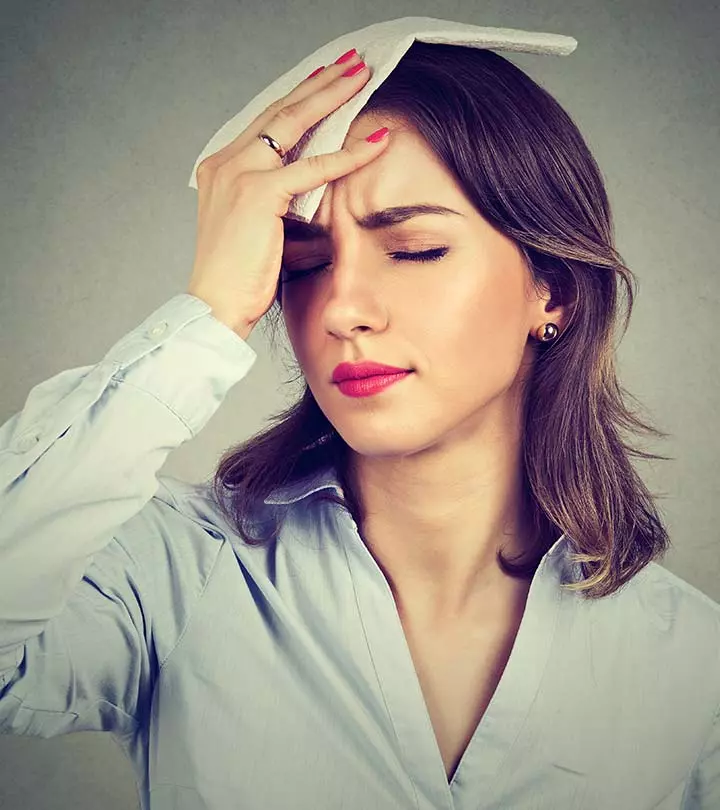
Image: Shutterstock
If you are experiencing sudden sweating, flushing, and heat, chances are you have hot flashes. The factors that cause hot flashes vary in frequency and severity but are mostly attributed to hormonal changes in the body that can be managed with the help of a few lifestyle changes. In this article, we list out a few home remedies for hot flashes you can try to stay cool.

In This Article
What Are Hot Flashes?
Hot flashes are inner feelings of intense heat that are not caused by an external source. A wave of feverish heat takes over you, and this can be characterized by flushing and sweating. But what exactly causes them?
Key Takeaways
- Hot flashes are waves of feverish heat caused mostly due to hormonal changes in the body.
- They can be caused by pregnancy, menopause, hyperthyroidism, spicy food, certain medications, and medical conditions.
- Some natural ingredients that may help soothe these flashes are black cohosh, vitamins, ginseng tea, evening primrose, and ginger water.
- You can also try a warm bath and a coconut oil body massage before bed.
What Causes Hot Flashes?
A hot flash is mostly a result of hormonal changes within your body. Such reactions may be triggered by a number of factors:
- Anxiety
- Stress
- Pregnancy, especially during the first two trimesters
- Hyperthyroidismi A condition where the thyroid gland is overactive, leading to a rapid heartbeat and faster metabolic rate than normal.
- Hot drinks and spicy food
- Alcohol
- Tobacco use
- Hot climate
- Caffeine
- Certain medications like tramadol and tamoxifen
- Medical conditions like spinal lesions
- Menopause (it is one of the main triggers of hot flashes in women). Understanding and recognizing low estrogen symptoms is a crucial step in taking control of your health during menopause. This knowledge empowers you to address the potential impacts of this deficiency on various aspects of your health.
Although hot flashes are more commonly associated with women undergoing menopause, they can affect men as well (where low testosterone levels are the culprit). Following a menopause diet can tame the symptoms further.
Signs And Symptoms Of Hot Flashes
The common signs and symptoms associated with hot flashes are:
- A sudden feeling of feverish heat that may last for about 30 seconds
- Redness or flushing of skin
- Excessive sweating (night sweats)
- A feeling of anxiety
- Palpitationsi A sense or feeling that one’s heart is racing, fluttering, or skipping a beat, which can cause temporary discomfort.
- Chills
Kari Anne Wright, a vlogger, spoke about her experience with hot flashes caused by menopause in her video. She said, “The hot flashes and the burning skin are brutal. They wake me up every single night and they sometimes plague me during the day as well (i).”
Hot flashes are no fun, and you may want to get rid of them as soon as you can. If you are among those who want to opt for natural remedies, look no further. Listed below are the remedies that can help.
Home Remedies To Treat Hot Flashes
- Black Cohosh
- Apple Cider Vinegar
- Vitamins
- Ginseng Tea
- Flaxseed
- Evening Primrose Oil
- Passion Flower
- Warm Water Bath
- Essential Oils
- Ginger
- CoconutOil
- Green Tea
- Aloe Vera Juice
- Tomato Juice
- Omega-3 Supplements
- Vitamin E
1. Black Cohosh
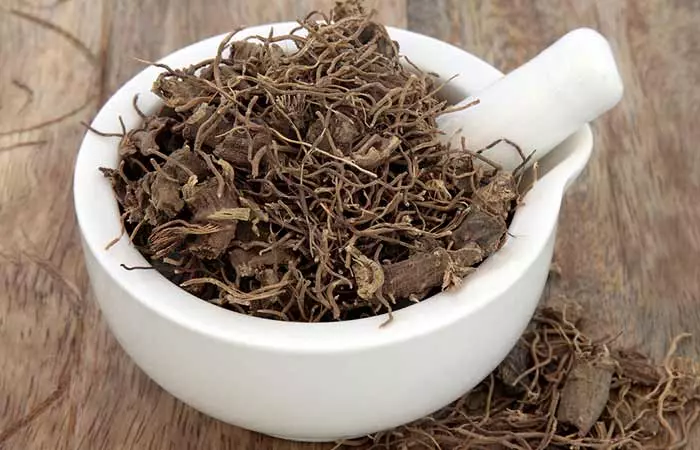
You Will Need
500 mg black cohosh supplements
What You Have To Do
- Consume 500 mg of black cohosh supplements daily.
- Alternatively, you can also consume black cohosh tea.
How Often You Should Do This
You must consume 500 mg of black cohosh supplements 2 to 3 times daily.
Why This Works
The roots and rhizomes of black cohosh relieve inflammation and anxiety and also aid sleep.
Hence, it is one of the best remedies for relieving hot flashes (1).
2. Apple Cider Vinegar

You Will Need
- 1 tablespoon of raw apple cider vinegar
- 1 glass of water
What You Have To Do
- Add a tablespoon of apple cider vinegar to a glass of water and mix well.
- Drink this solution.
How Often You Should Do This
You must drink this 1 to 2 times daily.
Why This Works
Raw and unfiltered apple cider vinegar possesses powerful anti-inflammatory properties, which can reduce the intensity of hot flashes
(2).
3. Vitamins

Vitamins B, C, and E help relieve hot flashes.
Studies have shown how the antioxidant properties of vitamins C and E can help improve the condition (3),(4). Similarly, folic acid (or vitamin B9) has also been proved to reduce the severity and duration of hot flashes in menopausal women (5). You can either take supplements (after consulting your doctor) or include the vital nutrients and minerals in your diet by consuming citrus fruits, leafy vegetables, soy, and nuts.
4. Ginseng Tea
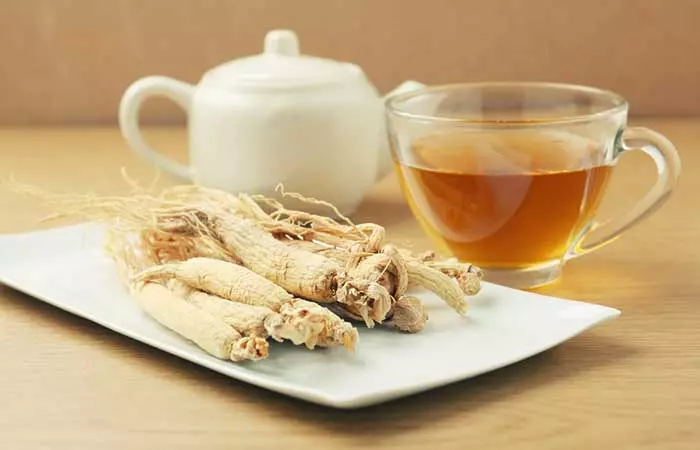
You Will Need
- 1-2 teaspoons of ginseng tea
- 1 cup of water
- Honey (optional)
What You Have To Do
- Add about two teaspoons of ginseng tea to a cup of water.
- Bring this to a boil in a saucepan.
- Allow it cool a bit and add some honey.
- Drink the tea right away.
How Often You Should Do This
Do this thrice daily for effective results.
Why This Works
The anti-inflammatory and anti-fatigue properties of ginseng provide relaxation and restore energy (6). Additionally, ginseng has a calming effect and can aid sleep. All of these properties help treat the condition (7).
5. Flaxseed
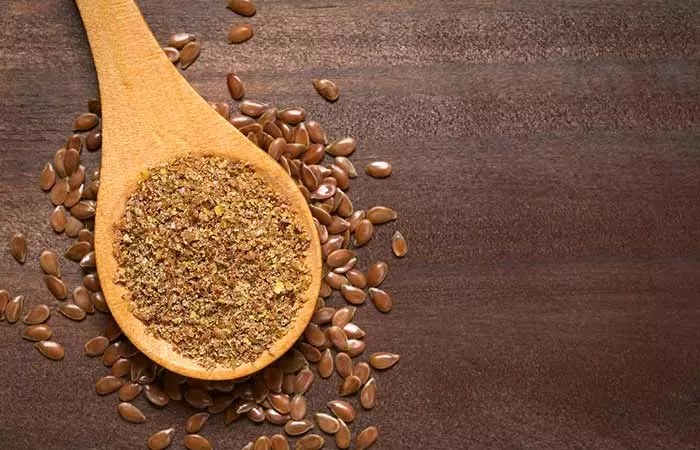
You Will Need
1-2 tablespoons of powdered flaxseed
What You Have To Do
- Add a tablespoon or two of powdered flaxseed to your favorite cereal or juice.
- Mix well and consume.
How Often You Should Do This
You must consume this twice daily.
Why This Works
One 2007 study had linked flaxseed consumption to reduced hot flashes. Flaxseeds were found to reduce the symptoms as well as the intensity of hot flashes, making them an excellent remedy to combat this condition (8).
Caution
Stick within the prescribed limits. Excess intake of flaxseeds can cause diarrhea or flatulence.
6. Evening Primrose Oil
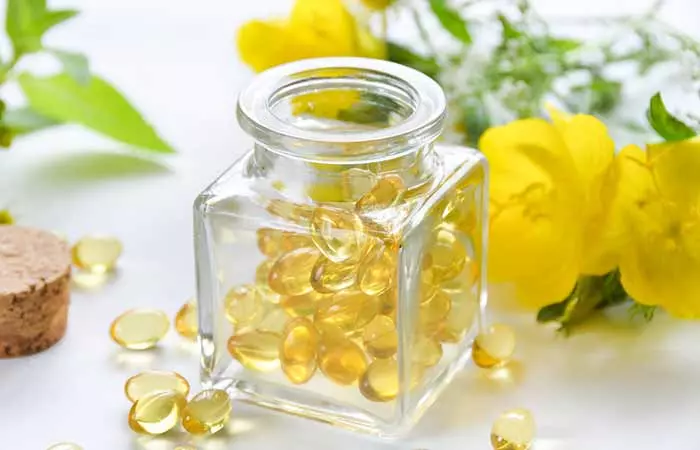
You Will Need
500 mg evening primrose oil supplements
What You Have To Do
Consume 500 mg evening primrose oil supplements.
How Often You Should Do This
You must do this 2 to 3 times daily.
Why This Works
Evening primrose oil supports the overall hormonal function of our bodies. Since hot flashes are caused by hormonal imbalances, taking primrose oil supplements can help treat hot flashes. The same has also been proved in an Iranian study (9).
7. Passion Flower
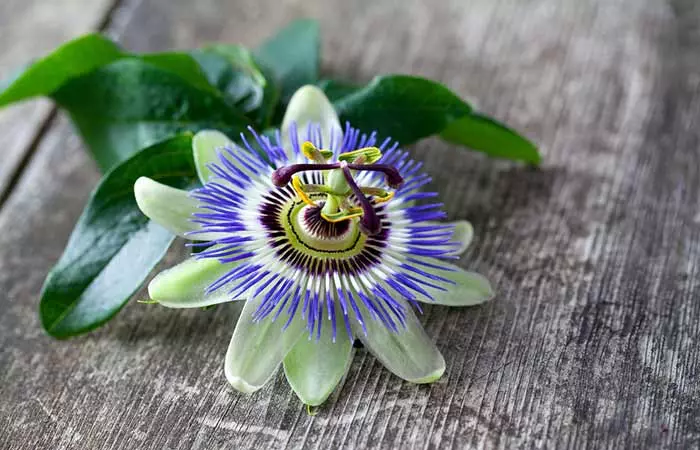
You Will Need
- 1 teaspoon of passion flower herb
- 1 cup of water
- Honey (optional)
What You Have To Do
- Add a teaspoon of passion flower herb to a cup of steaming hot water.
- Let it steep for 5 to 10 minutes.
- Add some honey as per your requirement and consume the tea before it turns cold.
How Often You Should Do This
You must drink this tea 3 to 4 times daily.
Why This Works
Anxiety is one of the worst triggers of hot flashes. Passion flower contains certain bioactive compounds that help you relax, and this reduces the severity and duration of hot flashes (10).
8. Warm Water Bath
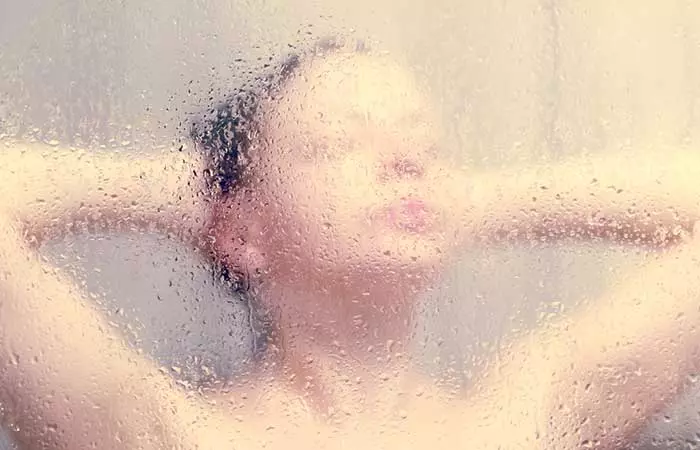
You Will Need
- Warm water
- 1-2 cups of Epsom salt
- A few drops of essential oil
What You Have To Do
1. Fill your tub with some warm water and soak in it for a while.
2. Alternatively, you can also opt for a warm shower.
How Often You Should Do This
You must do this once daily, preferably every night.
Why This Works
A warm shower or bath will help relieve the symptoms of hot flashes – as it can lower the internal temperature of your body, thus helping you stay cooler (11). Epsom salt can aid in detoxifcationi The process carried out by the liver to physiologically eliminate toxins and hazardous chemicals from the human body. , which can help the body detoxify excess hormones, helping to reduce hot flash symptoms. Adding essential oils can also provide further support in the bath.
Caution
Do not use very hot water as it may have a reverse effect on your condition.
9. Essential Oils
a. Peppermint Oil
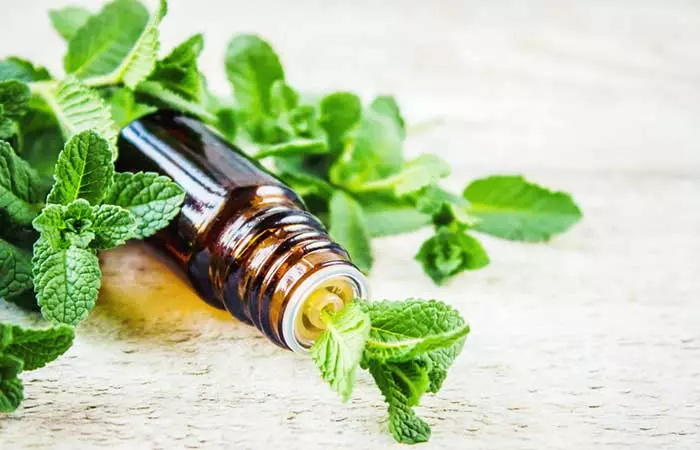
You Will Need
- 2-3 drops of peppermint oil
- Diffuser
What You Have To Do
- Add a few drops of peppermint oil to a diffuser and inhale the aroma.
- Keep the diffuser next to your bed before you go to sleep.
- You can also put a few drops of peppermint oil on a tissue and inhale its strong vapors.
How Often You Should Do This
You must do this daily.
Why This Works
The menthol in peppermint is widely known for its soothing properties. It helps you relax and reduces stress and anxiety. These soothing and calming properties of peppermint oil help reduce the severity of hot flashes (12).
b. Lavender Oil
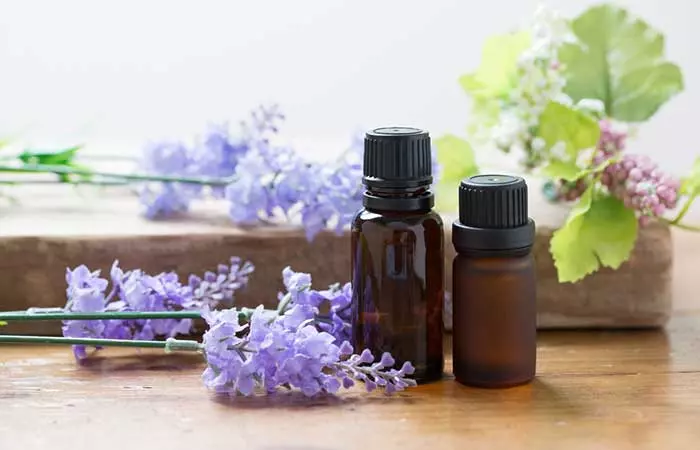
You Will Need
- 2-3 drops of lavender oil
- Diffuser
What You Have To Do
- Add two to three drops of lavender essential oil to a diffuser.
- Keep this near your bed before going to sleep and inhale its soothing aroma.
How Often You Should Do This
You must do this on a daily basis.
Why This Works
Lavender oil has multiple uses. From stress reduction inducing sleep, it is an effective remedy for all stress-related issues, including hot flashes. The pleasant aroma of lavender oil calms your mind and helps you relax, making it a great natural remedy for hot flashes (13).
10. Ginger
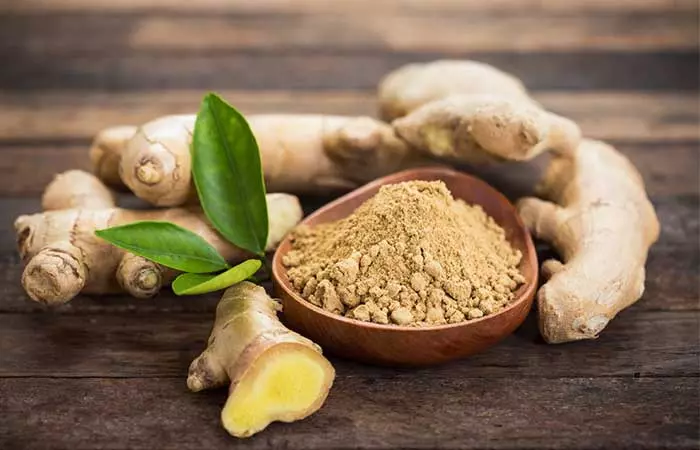
You Will Need
- 1 inch of peeled ginger
- 1 cup of water
- Honey (optional)
What You Have To Do
- Put an inch of ginger in a cup of water and bring it to a boil in a saucepan.
- Simmer for 5 minutes and strain.
- Let the tea cool for some time before adding honey.
- Drink it before it turns cold.
- You can also use raw ginger in your daily diet.
How Often You Should Do This
You must drink ginger tea 3 to 4 times daily.
Why This Works
Ginger’s antioxidant and anti-inflammatory properties are great for your overall health and can also help you relax and calm down. This herb also balances your hormonal activities, naturally healing hot flashes (14).
11. Coconut Oil
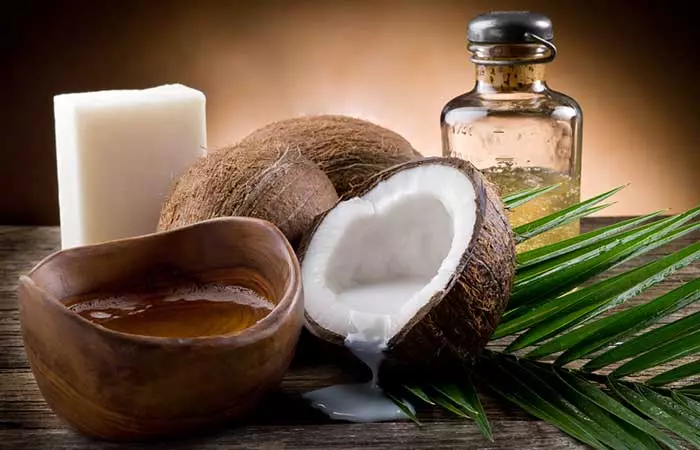
You Will Need
Coconut oil (as required)
What You Have To Do
- Indulge in a coconut oil body massage before going to bed.
- You can also add coconut oil to your daily diet.
How Often You Should Do This
You can do this every night or 2 to 3 times in a week.
Why This Works
Coconut oil is a rich source of fatty acids with excellent anti-inflammatory properties, which make it a soothing and cooling remedy for hot flashes. A good massage with coconut oil relieves stress and anxiety, which are major symptoms of hot flashes (15).
 Quick Tip
Quick Tip12. Green Tea
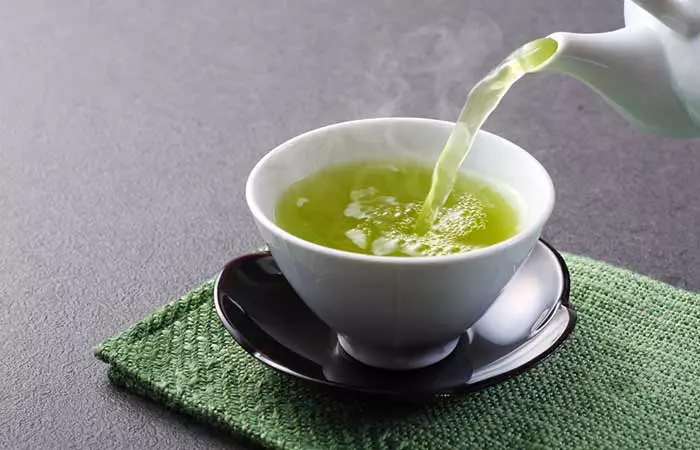
You Will Need
- 1 teaspoon of green tea
- 1 cup of hot water
- Honey (optional)
What You Have To Do
- Add a teaspoon of green tea to a cup of hot water.
- Steep for about 5 minutes and strain.
- Add a little honey and drink the tea.
How Often You Should Do This
You must drink this at least thrice daily.
Why This Works
Although caffeine intake should be avoided while dealing with hot flashes, green tea is an exception. This herbal tea contains catechins that exhibit strong antioxidant properties, which provide hydration and are great for your overall health. Green tea can also help fight fatigue and stress that often accompany hot flashes (16).
13. Aloe Vera Juice
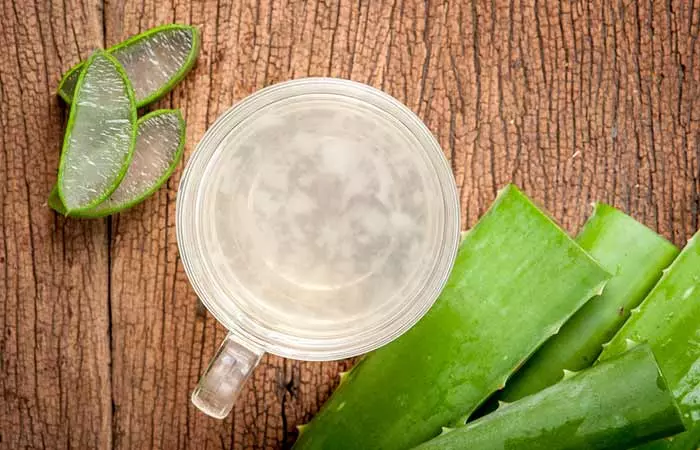
You Will Need
1/2 cup of aloe vera juice
What You Have To Do
Consume half a cup of aloe vera juice.
How Often You Should Do This
You must drink it once daily.
Why This Works
Aloe vera is a rich source of various phytonutrients. Some of them are phytoestrogens that mimic the activities of estrogen. As you know, decreased estrogen level is one of the major causes of hot flashes in menopausal women. Thus, consumption of aloe vera juice can restore your hormonal balance and, in turn, treat hot flashes.
14. Tomato Juice

You Will Need
1 cup of tomato juice
What You Have To Do
Drink a cup of unsweetened tomato juice.
You can either make it at home or buy it from a health store.
How Often You Should Do This
Drink tomato juice twice daily to combat hot flashes.
Why This Works
Tomatoes are good sources of lycopene, which alleviates symptoms like stress, anxiety, and fatigue. The juice is also a rich source of antioxidants and promotes overall health and healing (17). You can add some cinnamon to this juice to manage menopause-related hot flashes (18).
15. Omega-3 Supplements
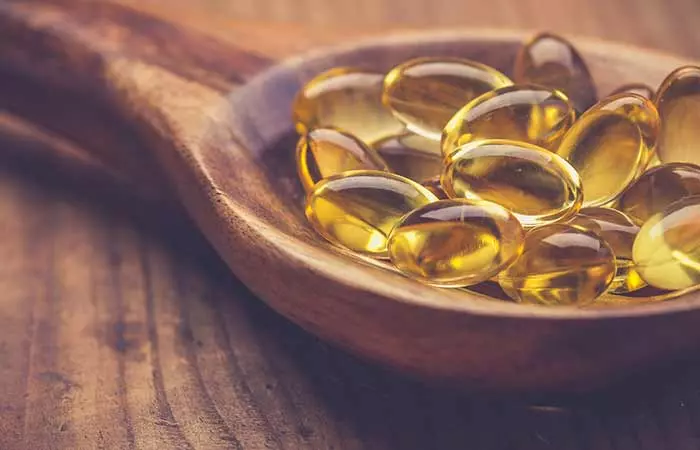
You Will Need
1000 mg omega-3 supplements
What You Have To Do
- Consume omega-3 supplements.
- You can also increase your dietary intake of omega-3s by consuming fish like salmon, sardine, and mackerel.
How Often You Should Do This
You must consume this supplement 1 or 2 times per day.
Why This Works
Omega-3 fatty acids are another potential treatment for hot flashes. A Canadian study found that omega-3 supplements could reduce both the frequency and intensity of hot flashes (19).
Caution
Consult your doctor before taking any additional supplements.
16. Vitamin E
You Will Need
1000 mg Vitamin E supplements
What You Have To Do
- Take vitamin E supplements.
- Increase your vitamin E intake by incorporating more nuts, seeds, vegetable oils, and green leafy vegetables into your diet.
How Often You Should Do This
You can take vitamin E supplements once daily, but consult a healthcare specialist for the right dosage.
Why This Works
Vitamin E, a fat-soluble antioxidant, has shown promise in mitigating hot flashes. Its anti-inflammatory properties may help regulate hormonal imbalances and reduce the frequency and severity of hot flashes. Research suggests that vitamin E supplementation can provide relief to some women experiencing these symptoms during menopause (20).
Caution
Always consult your healthcare provider before taking vitamin E supplements or opting for any additional treatments for hot flashes. Consider your individual needs and potential interactions with other medications or conditions for better results.
A survey was conducted on 3,460 postmenopausal women to determine the prevalence and health-related quality of life due to moderate-to-severe vasomotor symptoms. The most common vasomotor symptoms included tiredness (Europe/US 74%, Japan 75%), muscles and joint pain (Europe 69%, US 68%, Japan 61%), sleep difficulties (Europe 69%, US 66%, Japan 60%), and hot flashes (Europe 67%, US 68%, Japan 62%). The last symptom has a greater adverse impact on their daily activities.
Even though home remedies can offer immediate relief, incorporating specific lifestyle changes can help manage hot flashes more efficiently in the long run. Scroll down to know more.
Lifestyle Changes
Certain lifestyle adjustments can help reduce the frequency and intensity of hot flashes in addition to natural therapies. Using these simple strategies can offer a great deal of relief:
- To control body temperature and lessen the severity of hot flashes, drink lots of water throughout the day.
- Dress in layers that are simple to take off when you sense a heat flash approaching and wear airy, light clothing.
- To make your bedroom cozy and avoid night sweating, use fans, air conditioners, or cooling cushions.
- Recognize and reduce common triggers, such as alcohol, coffee, and spicy meals.
- Reduce stress, which can make hot flashes worse, by engaging in yoga, meditation, or deep breathing techniques.
Although there is nothing much women can do to prevent hot flashes altogether during menopause, they can wait it out and stay away from triggers with the help of the tips listed below.
Prevention Tips
- Wear lightweight clothes.
- Exercise daily. Try deep breathing, swimming or even dancing or cycling.
- Opt for relaxation techniques and therapies like yoga, meditation, acupuncture, aromatherapy, and body massage.
- Limit your intake of caffeine and alcohol for a proper and restful sleep pattern.
- Quit smoking (nicotine).
- Avoid eating spicy foods.
- Follow a diet that consists of fruits, vegetables including onion, garlic, whole grains, fish, lean protein, and fennel and cumin seeds (20), (21).
- You can also consume sage, liquorice root, St.John’s wort, dong quai, chamomile, and red clover to regulate hormones and prevent hot flashes (22), (23), (24), (25) (26), (27).
If preventive measures and natural remedies aren’t giving you enough relief, you can consult a doctor for some advice as well. In the next section, check out what lind of medical treatments are available for hot flashes.
 Quick Tip
Quick TipMedical Treatments
While home remedies may be effective, it’s important to know what kind of medical treatment options are available as well. Typical therapies include the following:
- Hormone Therapy: One of the most popular treatments for hot flashes is hormone replacement therapy. In order to ensure proper body temperature and lessen hot flashes, this treatment method uses hormone supplements, such as progesterone and estrogen.
- Non-Hormonal Medications: For people who cannot or do not want to undergo hormone therapy, medications such as selective serotonin reuptake inhibitors (SSRIs) may help control hot flashes. These drugs reduce symptoms by altering hormone levels or the neurological system.
- Cognitive behavioral therapy (CBT): CBT and other forms of psychotherapy can help control the stress and anxiety that often accompany menopause, which in turn can indirectly reduce hot flashes.
Infographic: Top 6 Home Remedies For Hot Flashes
Many women experience hot flashes during menopause, but they also occur due to certain medical conditions or medications. While hot flashes are disruptive and uncomfortable, some home remedies may help reduce their intensity and frequency. We have highlighted the six best home remedies that may help you deal with these hot flashes. Check out the infographic below for more information.
Some thing wrong with infographic shortcode. please verify shortcode syntaxHot flashes refer to feelings of intense heat in the absence of an external heat source. It presents as flushing, feverish heat, and sweating and is often caused due to hormonal changes triggered by multiple factors, including anxiety, stress, alcohol consumption, tobacco use, menopause, some medical conditions, and certain medications. Vitamins, black cohosh, warm water, essential oils, flaxseed, passion flower, evening primrose oil, omega-3 supplements, and tomato juice are a few of the natural ingredients that you can use to get rid of hot flashes and balance your hormonal levels.
Frequently Asked Questions
What does it mean when you wake up in sweat?
If you wake up in sweat, it most probably means that you have had a night sweat. Night sweats are often associated with hot flashes, but they usually occur while you are asleep.
Can you have hot flashes when you still have your periods?
Yes, you can have hot flashes while you are on your periods. This is mainly because of the fluctuating hormone levels that occur during menstruationi The breaking down of the uterine lining that is followed by vaginal bleeding, which can be a possible sign of no pregnancy.
Which type of doctor treats hot flashes?
Women often visit their gynecologistsi Doctors who treat issues associated with the female reproductive system, including the vulva, vagina, uterus (womb), and ovaries. for managing hot flashes. However, you can also visit primary health care providers or a general physician for the same. Holistic treatments alternative therapies are proven to be very effective to treat hot flashes, such as chiropractici A branch of complementary medicine that focuses on identifying and treating joint misalignments, particularly those of the spine. , kinesiologyi The study of movement by muscle monitoring therapy, which is practiced as a branch of complementary medicine. , homeopathic and herbal remedies, and acupuncture.
How long do hot flashes last?
Hot flashes usually start to fade away in 6 to 24 months. But for some women, they may last for the rest of their lives, but with milder symptoms.
Does vitamin D help with hot flashes?
Yes, research suggests that a decrease in vitamin D increases the risk of hot flashes in post-menopausal women(28). Thus, vitamin D supplementation may help keep hot flashes at bay.
Does turmeric help with hot flushes?
Yes, consuming oral capsules of curcumin were found to aid a significant decrease in the occurrence of hot flashes (29)
Can magnesium help with hot flashes?
Yes, research suggests that magnesium supplementation can help in reducing the symptoms and frequency of hot flashes (30).
Illustration: Home Remedies For Hot Flashes And Prevention Tips
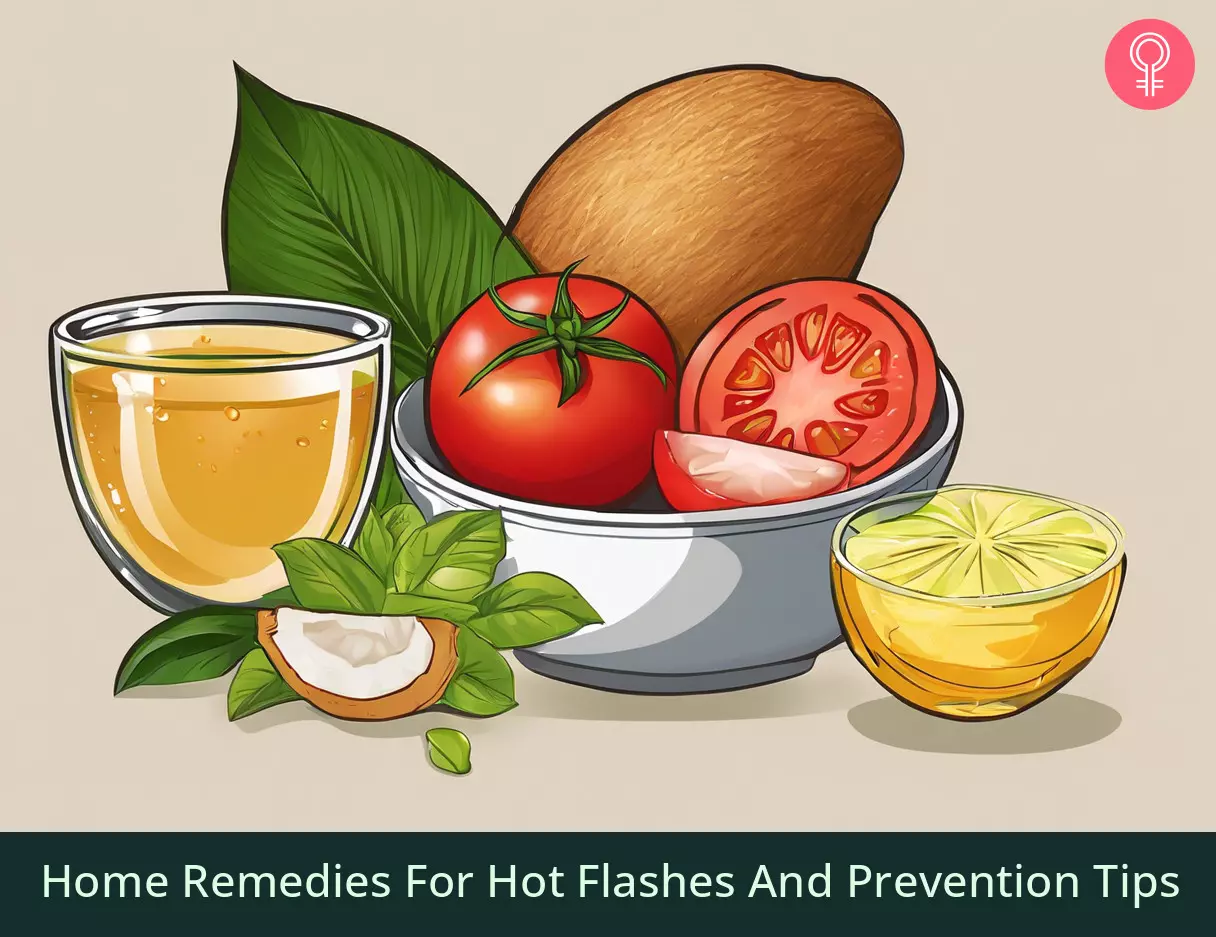
Image: Stable Diffusion/StyleCraze Design Team
Hot flashes can cause a lot of discomfort. But some simple home remedies can offer relief. Learn about the natural ways you can get some respite from your hot flashes from the comfort of your home.
Personal Experience: Source
StyleCraze's articles are interwoven with authentic personal narratives that provide depth and resonance to our content. Below are the sources of the personal accounts referenced in this article.
i. Surviving hot flashes/burning skin/night sweats in menopause. How to ease hot flashes.https://www.youtube.com/watch?v=_m0dqKcJq1I
Read full bio of Dr. Abby Kramer
Read full bio of Shaheen Naser
Read full bio of Arshiya Syeda
Read full bio of Dipti Sharma






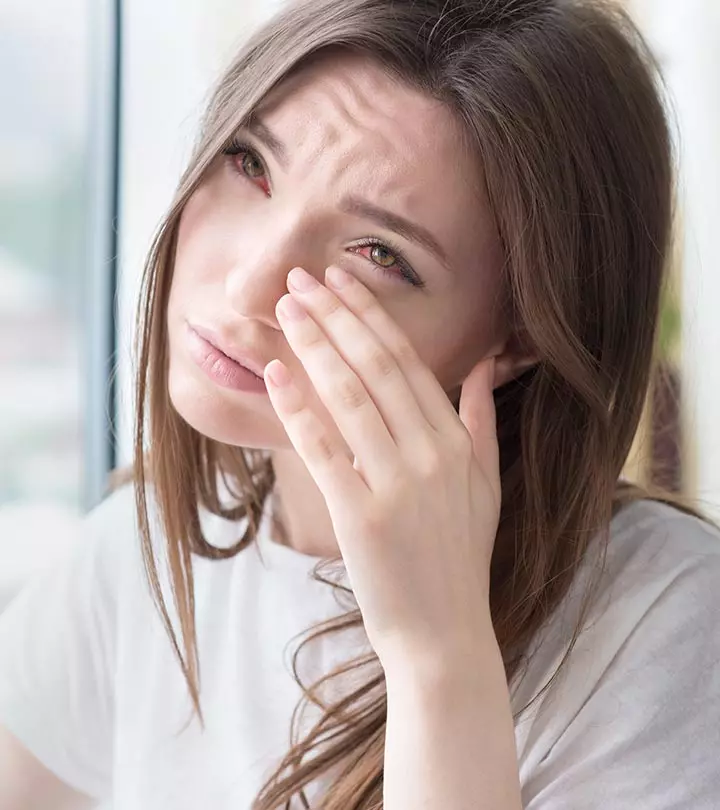
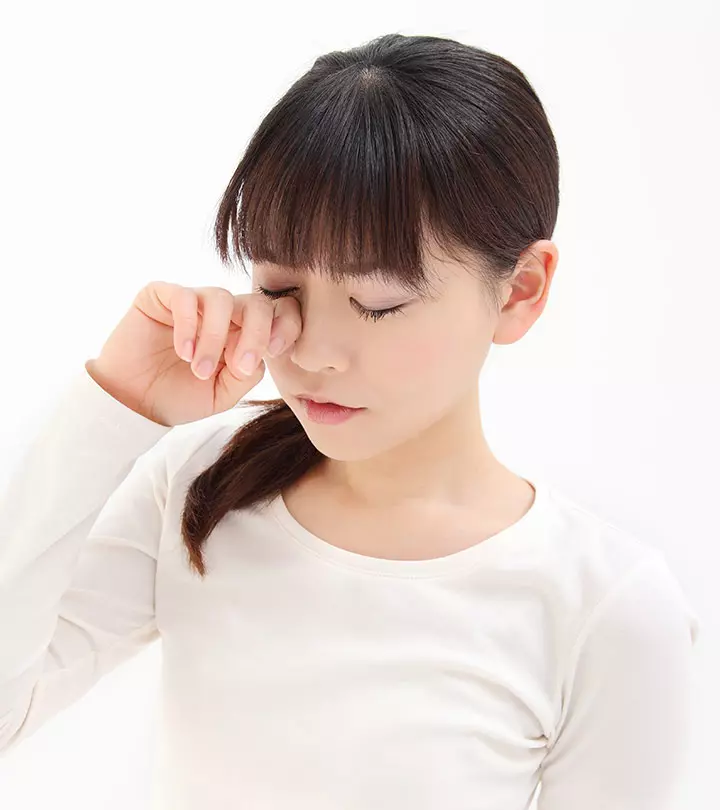
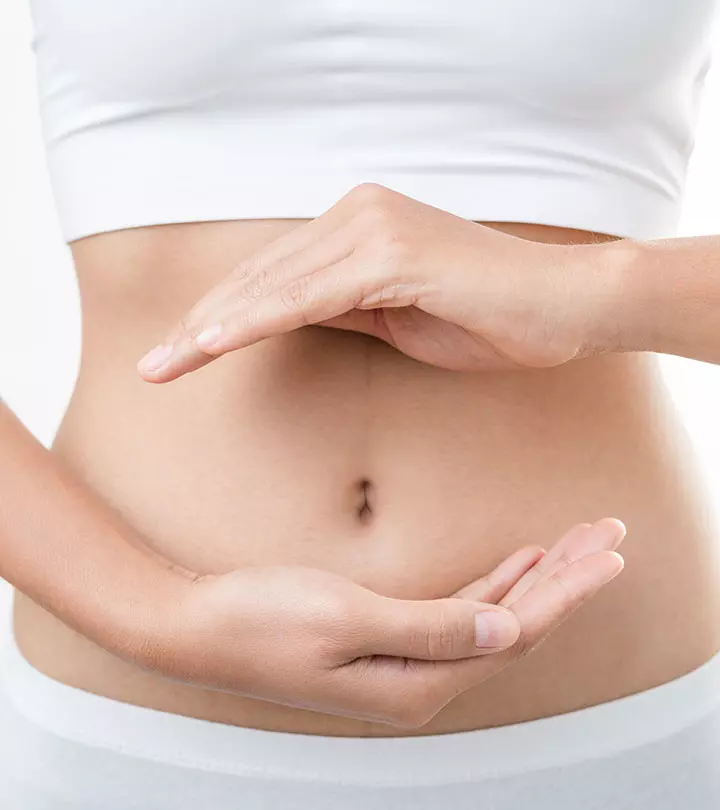
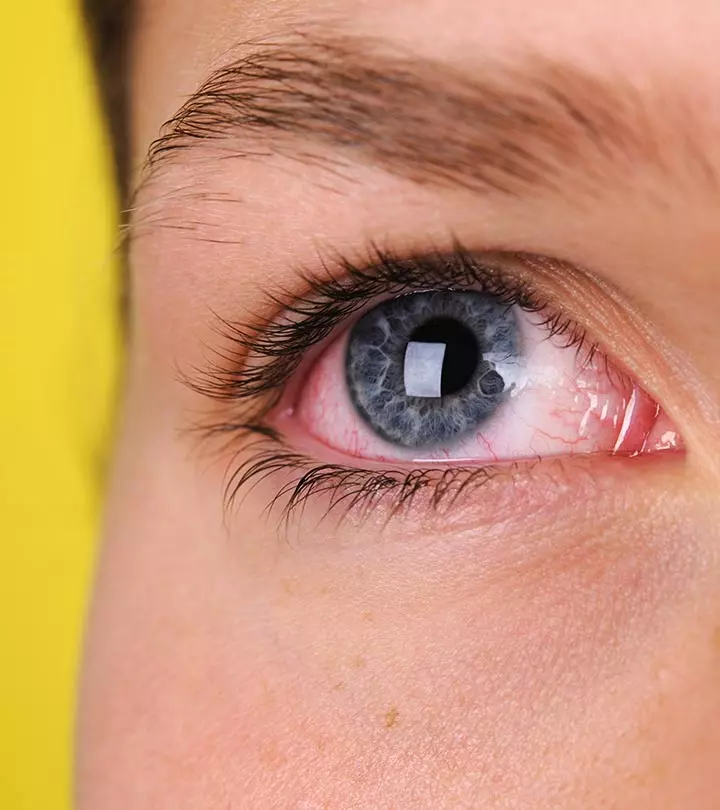

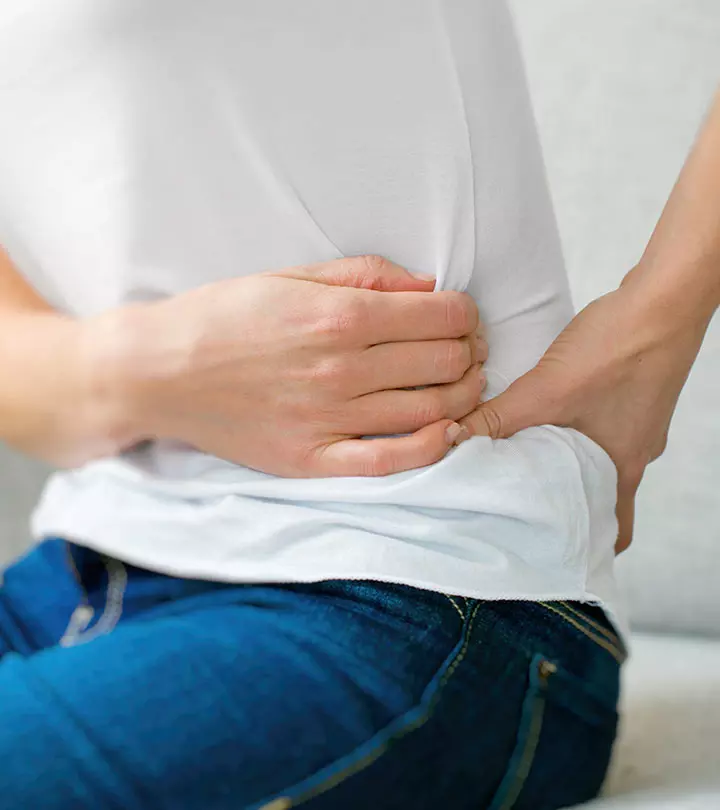

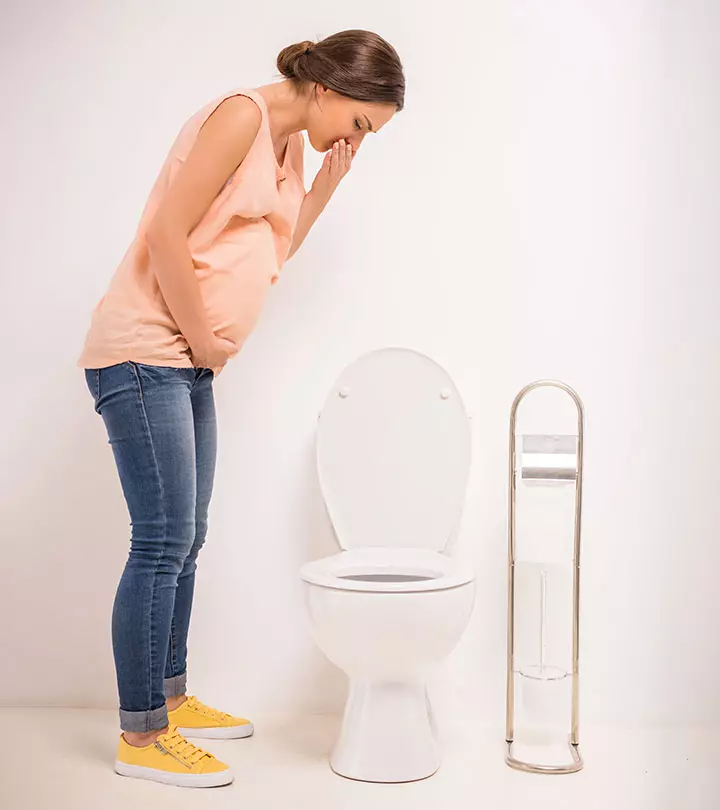
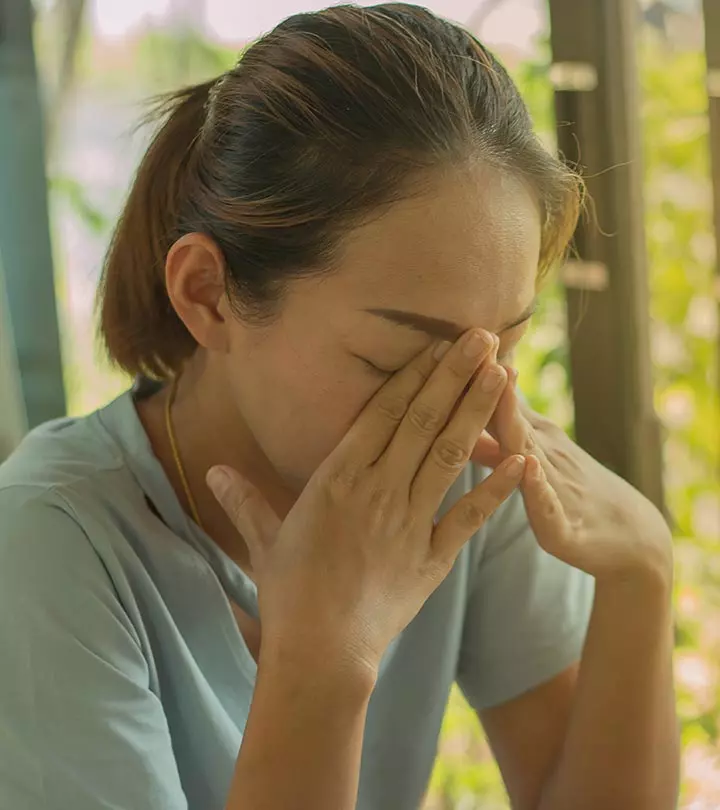
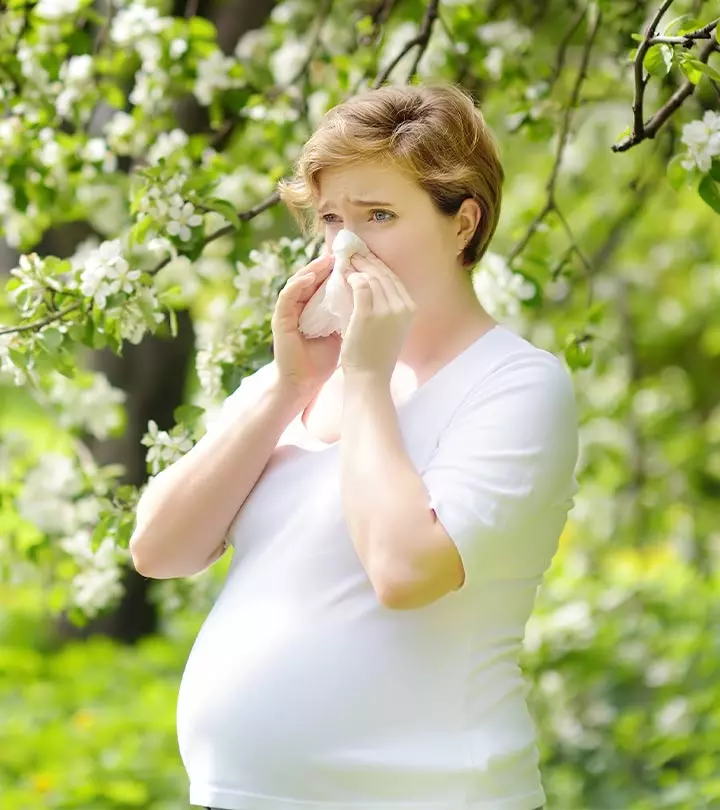
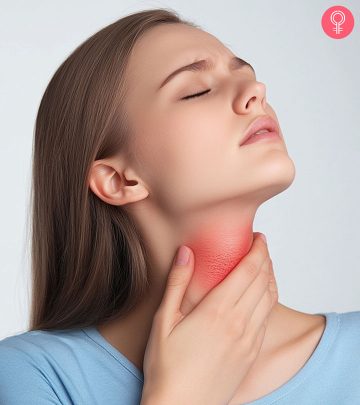

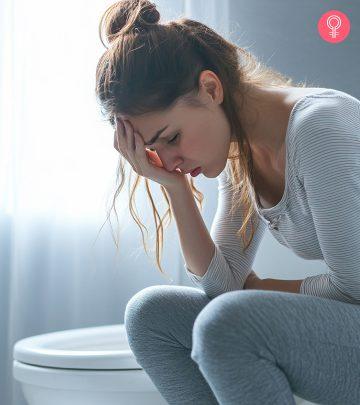
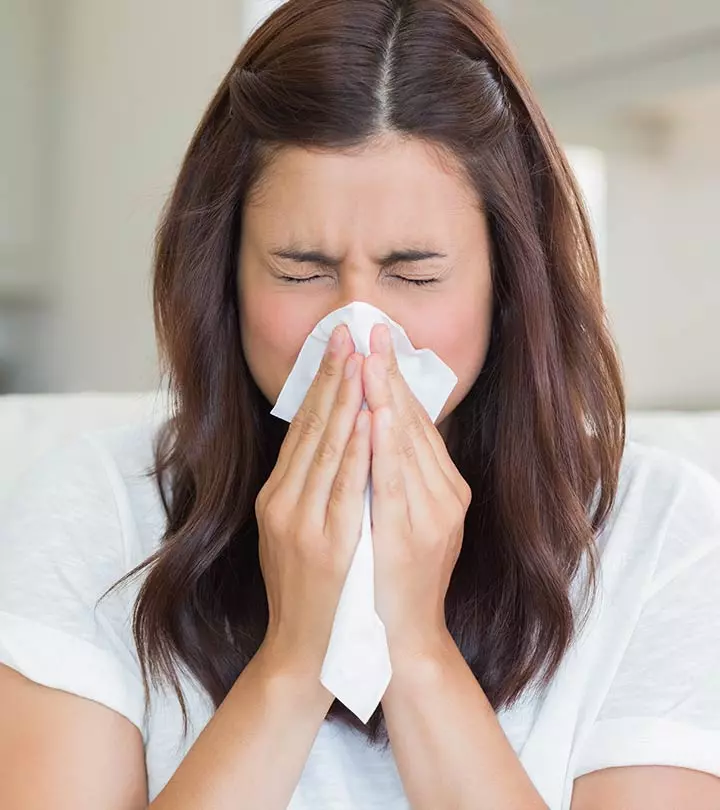
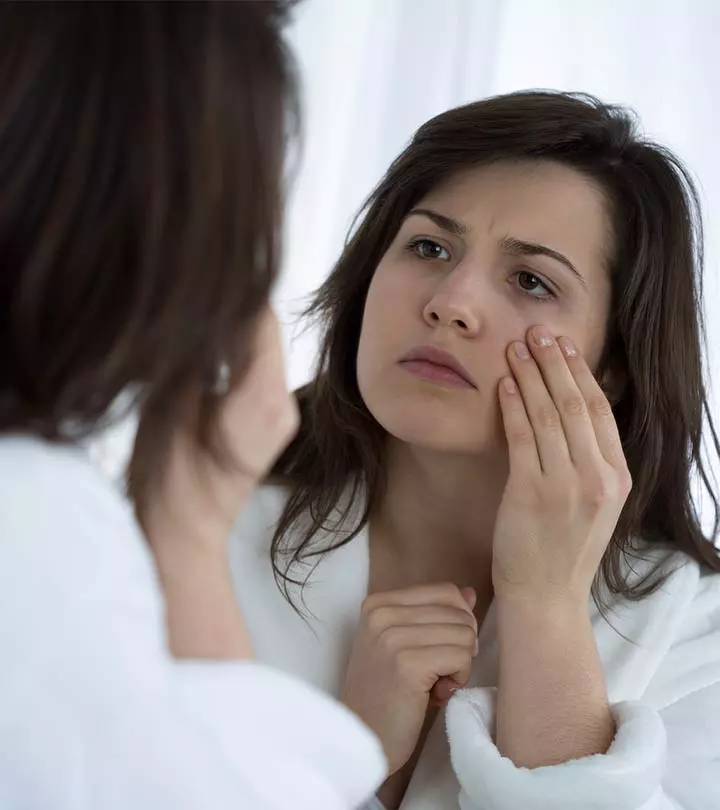



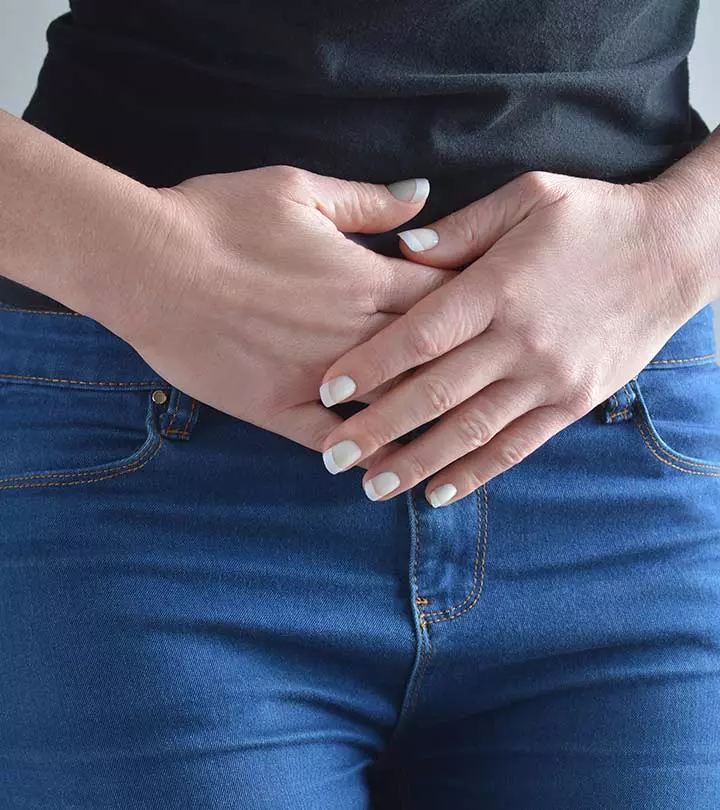

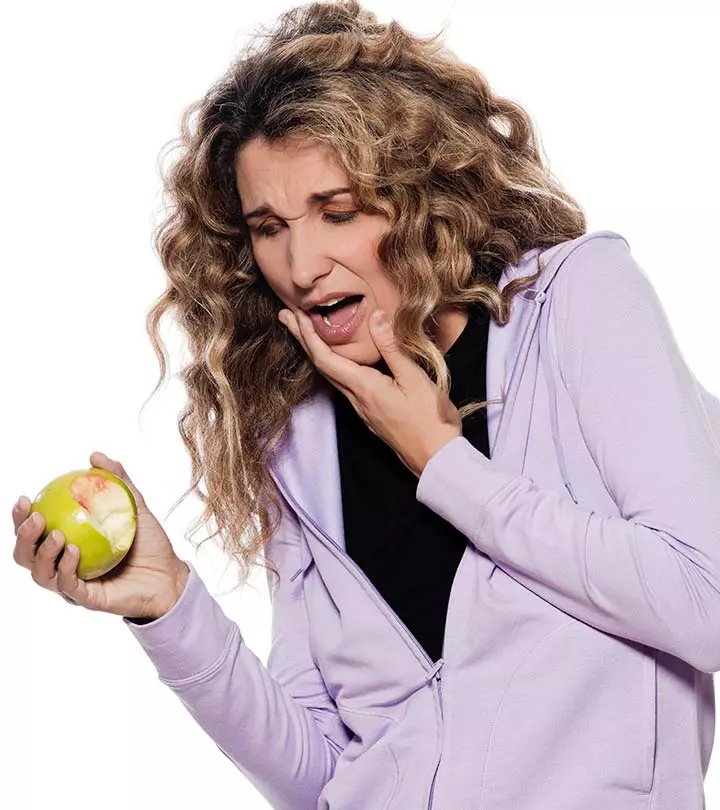
Community Experiences
Join the conversation and become a part of our empowering community! Share your stories, experiences, and insights to connect with other beauty, lifestyle, and health enthusiasts.